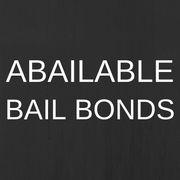3 Items Commonly Used as Collateral for Bail Bonds

Many people secure bail bonds when they don’t have the funds to post the full bail amount. If their money isn’t enough to cover the cost of the bond, a bondsman will accept some form of collateral. This ensures clients can stay out of jail until their next court appearances. If you or a loved one are arrested, below are three items you can use as collateral to secure a bond.
3 Common Types of Collateral for Bail Bonds
1. Real Estate
Any form of real estate, including buildings and land, can be used as collateral. The natural resources on the land, such as streams and livestock, are also accepted. If a client doesn’t own the property outright, it could still be used for the bail bond. It’s okay to use as collateral when equity is high.
2. Vehicles
 To secure the bail bond, agents typically accept high-price items with a market value that can be easily identified. That’s why cars, trucks, motor homes, boats, campers, and snowmobiles are often used as collateral. The bail bond agent will hold on to the vehicle title until the case is closed. If the client doesn’t show up to hearings and follow other terms of their bail, the agent or court can seize the vehicle.
To secure the bail bond, agents typically accept high-price items with a market value that can be easily identified. That’s why cars, trucks, motor homes, boats, campers, and snowmobiles are often used as collateral. The bail bond agent will hold on to the vehicle title until the case is closed. If the client doesn’t show up to hearings and follow other terms of their bail, the agent or court can seize the vehicle.
3. Pawnable Items
Bondsmen also accept fine jewelry, electronics, antiques, and other smaller items of value. If the client doesn’t follow the terms of their release, the agent can sell the items to a pawn shop to get the cash value quickly. A bondsman will find out the market value of smaller pieces before allowing you to use them as collateral.
If you or a family member have been arrested in the Hartford County area, contact Abailable Bail Bonds in Plainville, CT, for immediate assistance. The courteous, discreet team has over 20 years of experience, which means they can help you navigate the legal system and secure a bail bond. To learn about the 24-hour bail bond services they provide, call (860) 221-5565. Visit the company online to find out how the process works.
About the Business
Have a question? Ask the experts!
Send your question

